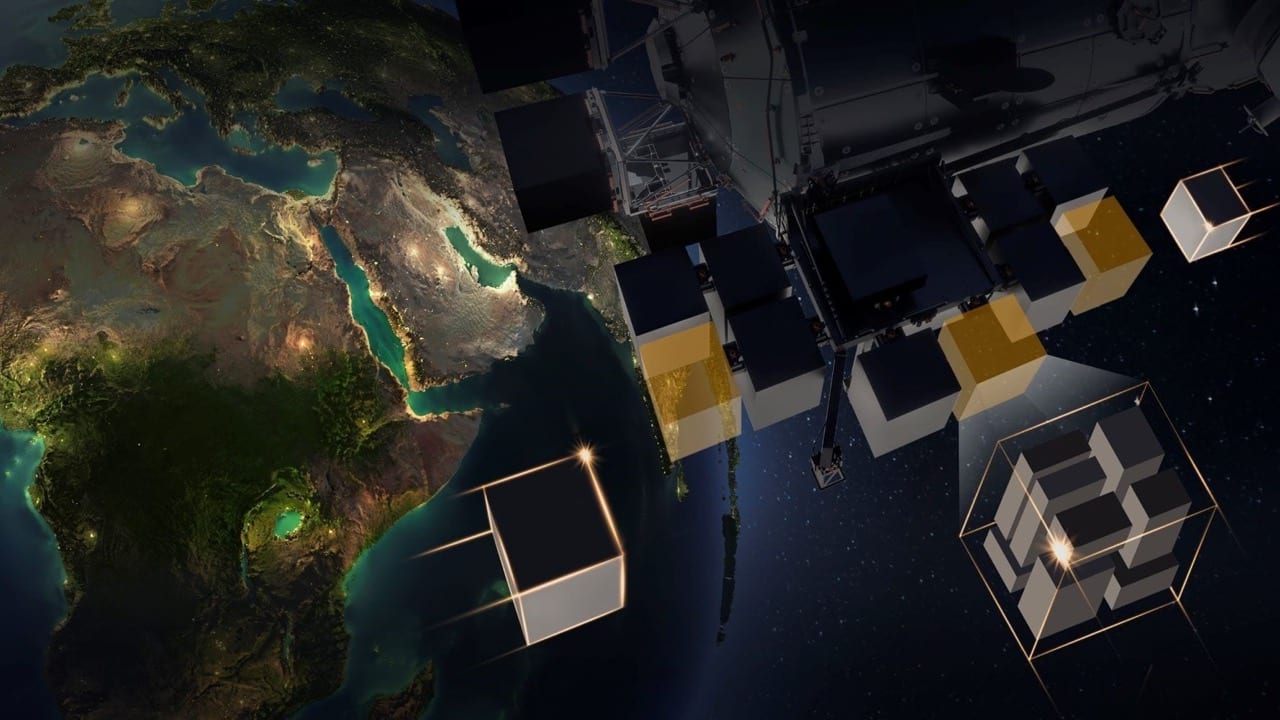
The United Nations Office for Outer Space Affairs (UNOOSA) and Airbus Defence and Space have selected the winner of their joint opportunity for a free one year mission aboard the International Space Station (ISS). The climate mission supporting the UN’s Sustainable Development Goals will fly on Bartolomeo, the Airbus external payload hosting platform.
The winning ‘ClimCam’ team consists of specialists from different fields and symbolizes the power of international cooperation, bringing together researchers from three institutions: the Egyptian Space Agency, the Kenyan Space Agency, and the Uganda National Space Programme within the Ugandan Ministry of Science, Technology and Innovation.
Jointly, the team will develop a remote sensing camera system to monitor weather, floods, and impacts of climate change in East Africa. The three institutions have agreed to an open data policy, sharing information and images acquired from the project to guide climate change mitigation efforts across the entire region. In addition to its direct goals, the project will also demonstrate space technology developments made in Africa, inspiring African engineers and scientists.
UNOOSA Director Simonetta Di Pippo said: “Together with Airbus, and thanks to the ingenuity of the brilliant selected researchers, we are making it possible for this module made in Africa to fly onboard the ISS. This project will acquire precious insights for the East African region to address pressing challenges such as droughts and floods and increase the resilience of its agricultural sector, potentially saving many lives and helping to build a better future. It will also be an important inspiration for talent in Africa to join the space sector. We are extremely proud to have played a role in making this happen, and we look forward to seeing the project take flight.”
”We are very pleased to welcome this UNOOSA-backed team with their African climate mission as a passenger on the Bartolomeo platform,” said Andreas Hammer, Head of Space Exploration at Airbus Defence and Space. “Of course, we are offering them our Bartolomeo All-in-One Space Mission Service, meaning that our own experienced Space experts will take care of all aspects of this Space mission – preparatory formalities, payload launch and installation, operations and data transfer. This way, the team can fully concentrate on the development and exploitation of their environmental monitoring payload, without having to worry about anything else. This is one of the fundamental benefits of the Bartolomeo Service – we make access to space easier than ever before.”
“We are very happy to win this opportunity in such a world class competition, the team would like to introduce gratitude to the UNOOSA and AIRBUS for this opportunity,” said Ayman Ahmed, Team leader at the Egyptian Space agency and ClimCam project coordinator. “Of course, we understand that challenges exist in our region; climate change is having a growing impact on Africa, especially in the most vulnerable hardest, and contributing to food insecurity, and stress on water resources in east Africa as well. Having an imaging system at ISS allows us to monitor and see that effect in our home countries. We do realize the challenge of developing such a device to operate on board the ISS with very critical and challenging design constraints.
“The competition was very hard, but being awarded this opportunity is just the beginning for our team to learn more and acquire great experience in the field of space technology and its application.”
This is the first time the UN has selected a winner for an opportunity to access space in partnership with a private sector company. For more information about Bartolomeo and its potential for reducing the space divide, please visit: www.airbus.com/bartolomeo





